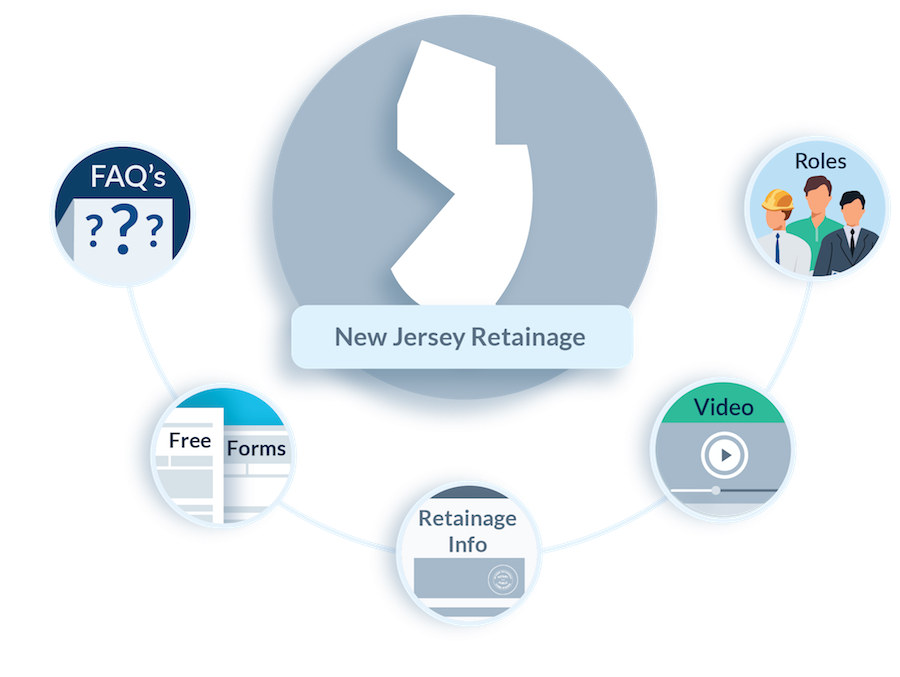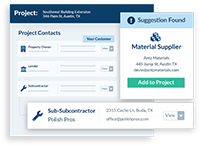New Jersey Retainage Requirements
- Private Jobs
- Public Jobs
- Top Links
Retainage Limit
Not Regulated by State Law
Pay Period
Not Regulated by State Law
There's No Process to Recover
Not specified
Not Held In Escrow
In New Jersey, contractors and owners do not need to hold retainage funds in a separate escrow account.
5 Percent
For highway, county, and municipal projects, retainage rate is set at 2%. For education projects, retainage set at 5% if there is no performance bond on the project.
45 Day Pay Period
Retainage must be released to the contractor within 45 days of final acceptance date.
There's No Process to Recover
Not specified
Retainage, also called “retention,” is an amount “held back” from a contractor or subcontractor during the course of the project. In general, retainage serves two main purposes:
- To provide an incentive to the contractor or subcontractor to complete the projects; &
- To give the owner/entity some protection against problems such as liens, contractual defaults, delays, and more.
In most states, laws exist to regulate how the parties use the retainage concept, mostly protecting some parties against abuse of the tool from others. The following are resources, legal information, and frequently asked questions about New Jersey’s retainage requirements.
New Jersey retainage limits and deadlines
New Jersey’s retainage statutes only apply to certain public works projects. Retainage practices on private projects aren’t regulated in New Jersey, and will therefore be determined by the terms of the contract.
Generally, the amount of retainage that can be withheld on public projects is capped at 2% of each progress payments. On county/municipal projects, retained is reduced to 1% after substantial completion. On State highway projects the rate can range from 2-5%. The release of retainage by the public entity can also range from 30-45 days depending on the project. Upon receipt, retainage should be released to subs and suppliers within 10 days.




